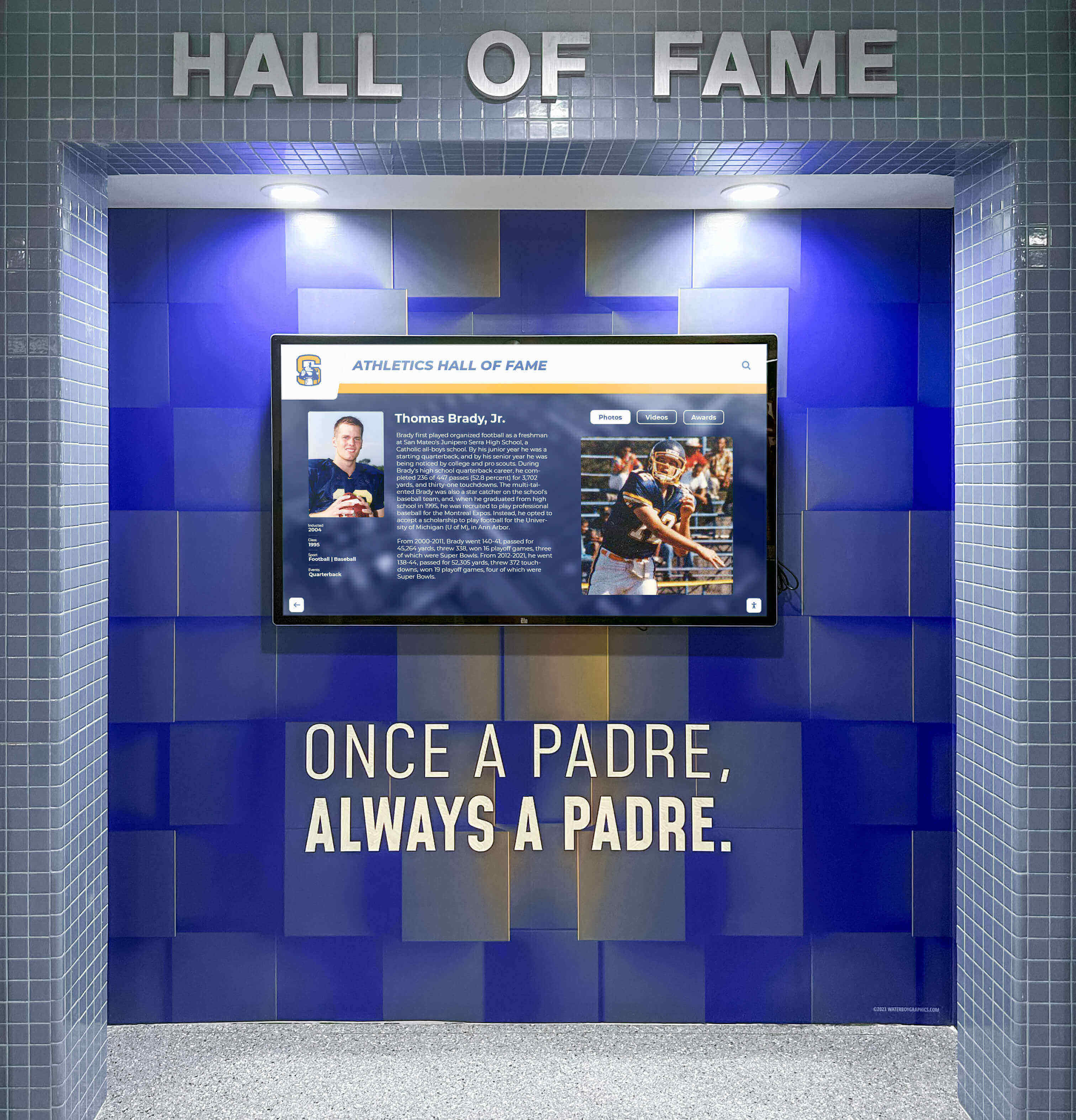Key Takeaways
Explore the complete history of the Boston Bruins franchise from 1924 to today. Discover Stanley Cup championships, legendary players, historic moments, and how digital displays preserve hockey tradition.
The Founding Years: Birth of a Hockey Legend (1924-1929)
The Boston Bruins entered the National Hockey League on November 1, 1924, becoming the first American-based NHL franchise. Founded by grocery store magnate Charles Adams, who was inspired after attending the 1924 Stanley Cup playoffs in Montreal, the team was named “Bruins” to reflect strength and an untamed, ferocious animal—characteristics Adams wanted his team to embody.
Art Ross, a legendary hockey figure, was hired as the team's first coach and general manager. Ross would become one of the most influential figures in Bruins history, serving the organization in various capacities for nearly 30 years. The team's distinctive brown and gold colors (later changed to black and gold) were chosen to match Adams' grocery store chain, First National Stores.
The Bruins played their first game on December 1, 1924, at Boston Arena, defeating the Montreal Maroons 2-1. That inaugural season established immediate respectability, though the team would not reach its first Stanley Cup Final until 1927. These formative years laid the foundation for what would become one of hockey's most successful franchises.
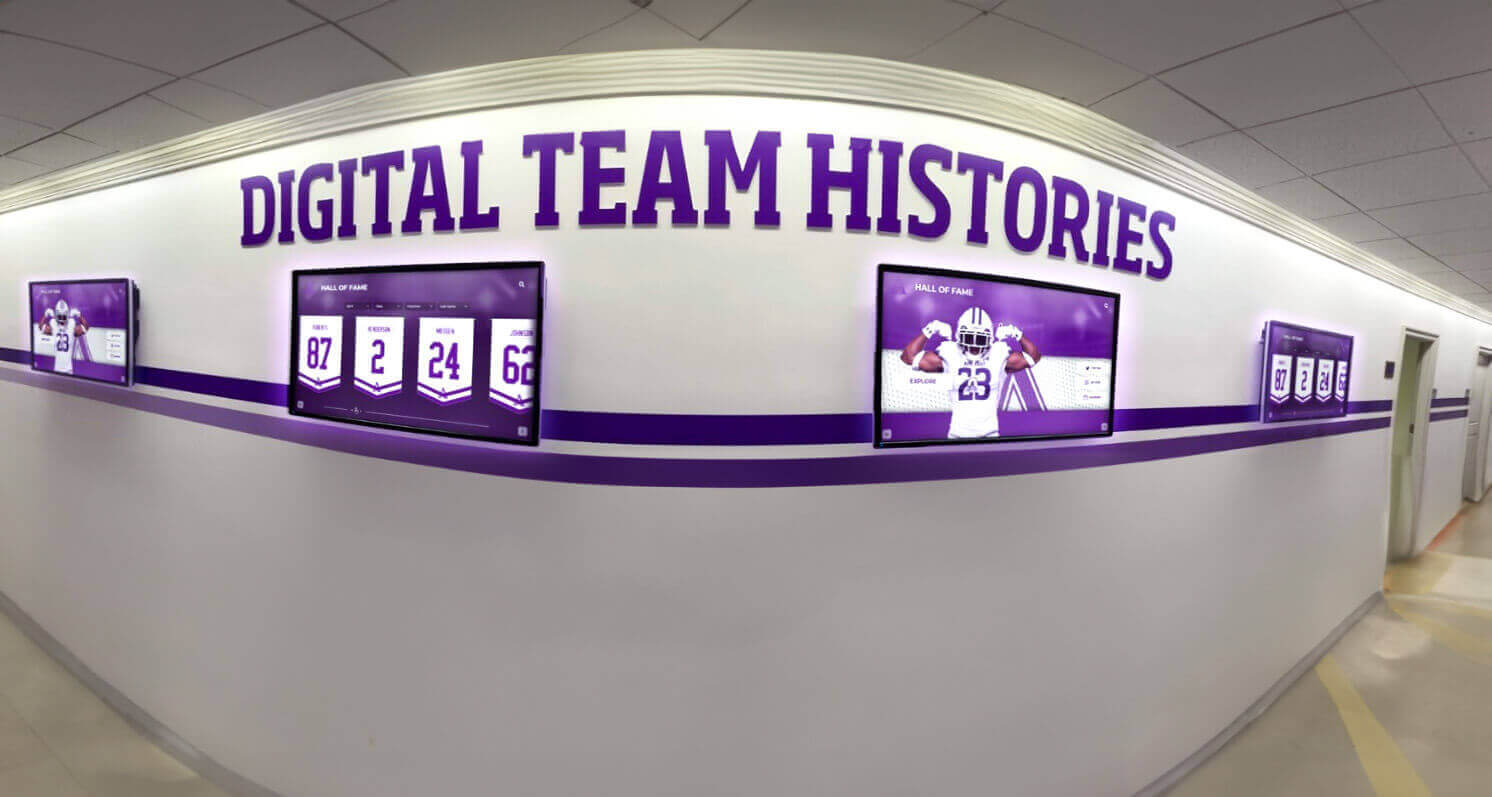
Building Boston Garden and Early Success
In 1928, the Bruins moved to the newly constructed Boston Garden, which would serve as their home for nearly 70 years. The 13,909-seat arena became one of hockey’s most legendary venues, known for its intimate atmosphere, lack of air conditioning, and the intimidating advantage it provided Boston teams.
The move to Boston Garden coincided with the team’s first Stanley Cup championship in 1929. The Bruins dominated that season with a 26-13-5 record and swept the New York Rangers in the finals. This championship established the Bruins as a legitimate NHL power and began a tradition of excellence that continues today.
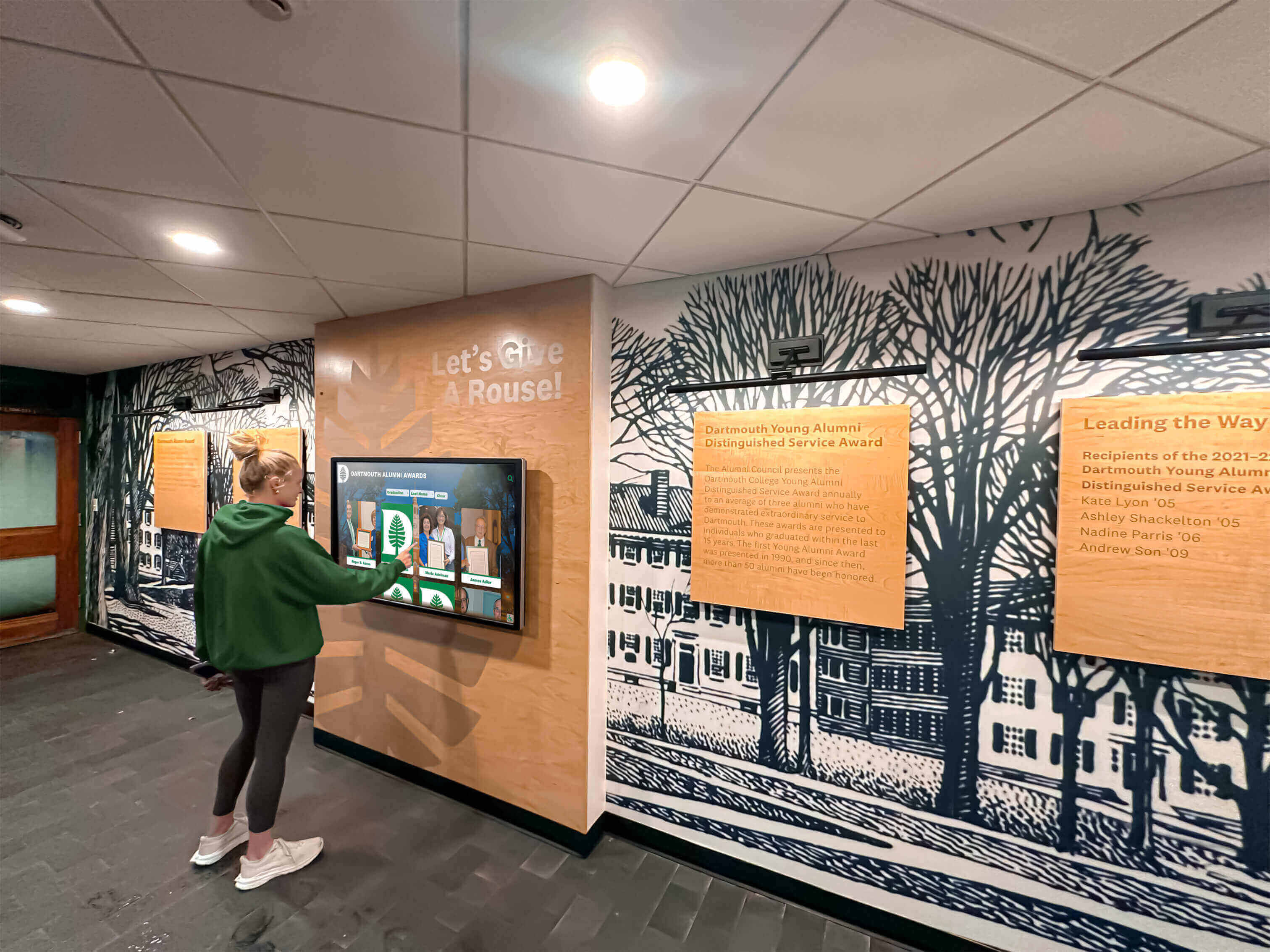
The First Dynasty: 1930s and 1940s Golden Era
Following their 1929 championship, the Bruins quickly established themselves as the NHL’s premier franchise during the 1930s and early 1940s. This era featured some of the greatest players in hockey history and created traditions that defined the franchise.
The Kraut Line and Championship Success
🏆 1939 Stanley Cup Championship
The Bruins captured their second Stanley Cup, led by the legendary "Kraut Line" of Milt Schmidt, Woody Dumart, and Bobby Bauer—all from Kitchener, Ontario.
🏆 1941 Stanley Cup Championship
Boston won its third championship in just 13 years, defeating the Detroit Red Wings in a thrilling four-game sweep that showcased the team's dominance.
⭐ Eddie Shore Era
Defenseman Eddie Shore won four Hart Trophies (NHL MVP) during the 1930s, revolutionizing defensive play and becoming hockey's first true superstar.
🥅 Tiny Thompson Excellence
Goaltender Cecil "Tiny" Thompson backstopped the Bruins to championship glory, winning four Vezina Trophies and setting standards for goaltending excellence.
Organizations preserving hockey history often utilize comprehensive athletic recognition programs that celebrate achievements across multiple eras and showcase legendary players from these golden years.
World War II Impact and Post-War Challenges
Like all NHL teams, the Bruins were significantly impacted by World War II. Many players, including the entire Kraut Line, enlisted in military service. The team struggled during and immediately after the war, not winning another championship for 29 years after their 1941 triumph.
These decades tested the franchise’s resilience, but the loyalty of Boston fans and the foundational excellence established in earlier years sustained the organization through this challenging period.
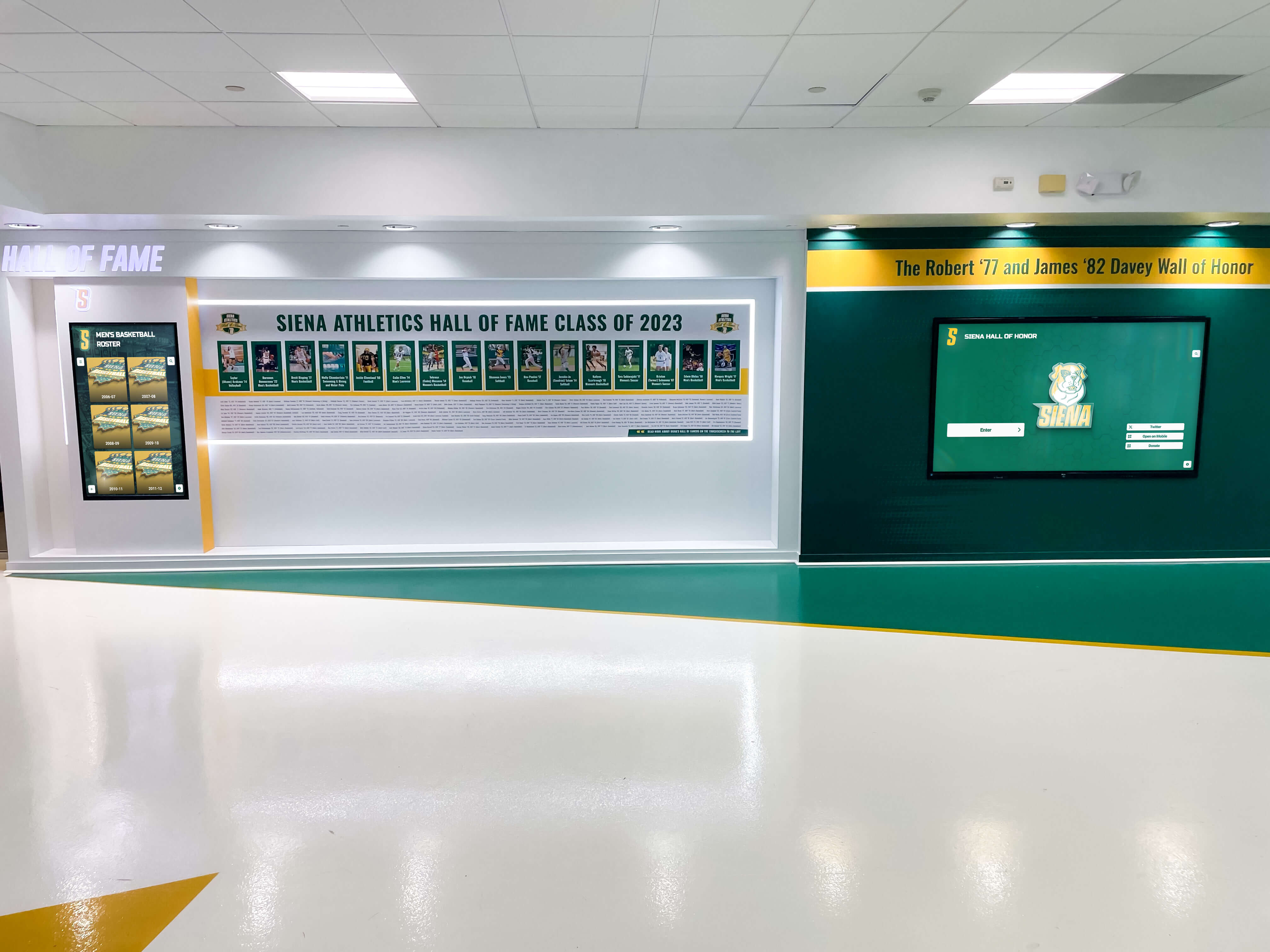
Bobby Orr and the Modern Dynasty (1966-1979)
The late 1960s and 1970s represent the most celebrated era in Boston Bruins history, largely due to the arrival of the greatest defenseman ever to play the game: Bobby Orr.
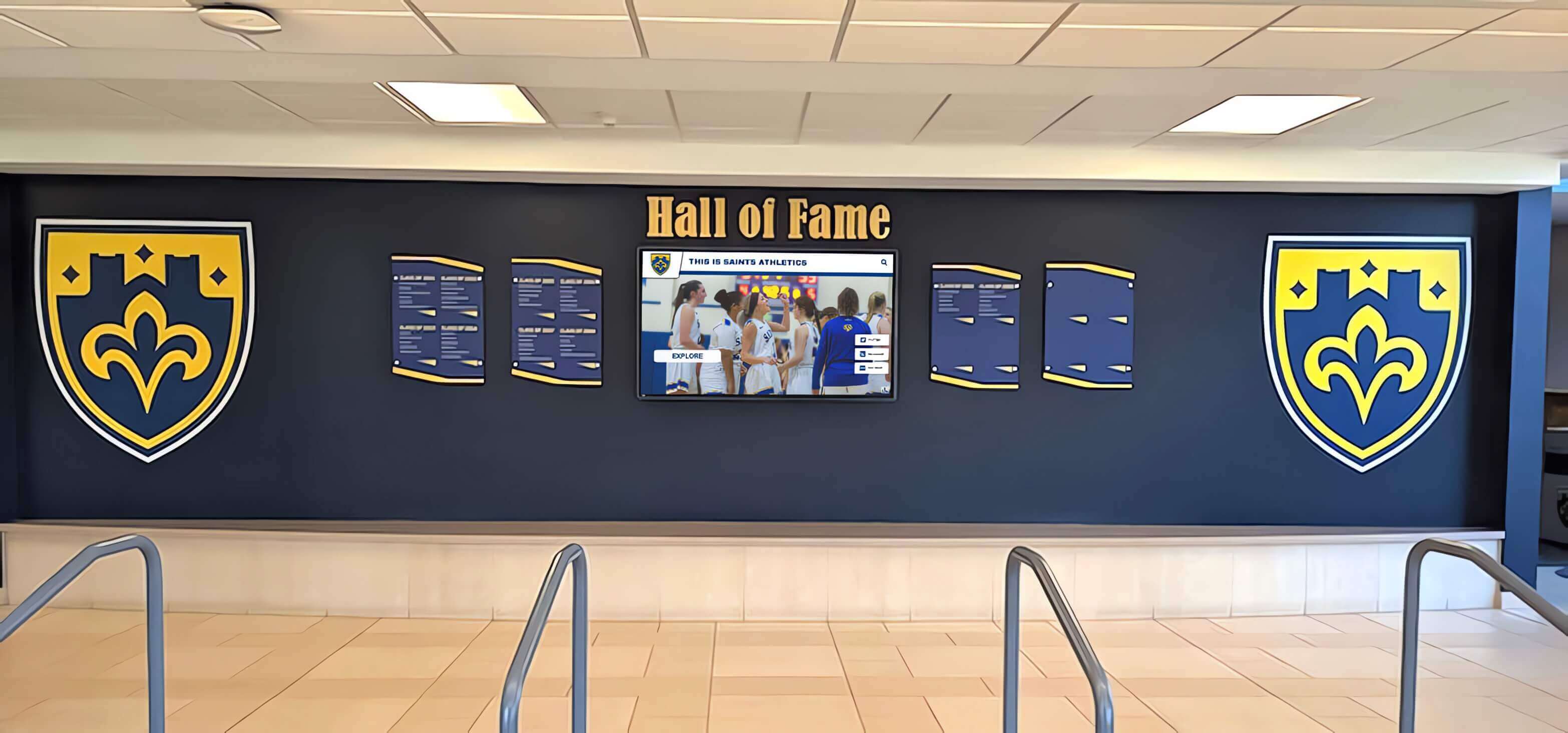
The Bobby Orr Revolution
Bobby Orr joined the Bruins as an 18-year-old in 1966 and immediately transformed the franchise and the sport itself. Orr revolutionized the defenseman position, combining elite defensive skills with breathtaking offensive creativity that had never been seen before.
- Eight Consecutive Norris Trophies: Orr won the award for best defenseman every year from 1968-1975
- Three Hart Trophies: The only defenseman to win MVP three times
- Two Art Ross Trophies: Led the entire league in scoring—unprecedented for a defenseman
- Career Plus-Minus Record: His +597 career rating remains the all-time NHL record
- Revolutionary Mobility: Changed how defensemen played by rushing the puck and quarterbacking power plays
Orr's impact extended beyond statistics. He made the Bruins must-see entertainment and elevated hockey's popularity throughout North America.
Stanley Cup Championships of 1970 and 1972
The Bobby Orr era delivered two Stanley Cup championships that remain among the most celebrated in NHL history.
1970 Stanley Cup: The Bruins swept the St. Louis Blues in four games to capture their first championship in 29 years. The series concluded with perhaps the most iconic moment in hockey history—Bobby Orr’s overtime goal in Game 4, captured in a famous photograph showing Orr flying through the air in celebration. This “flying goal” image became one of sports’ most recognized photographs.
1972 Stanley Cup: Boston defeated the New York Rangers in six games to capture its fifth Stanley Cup. The championship showcased the team’s depth, featuring not only Orr but also Phil Esposito, who had set NHL records with 76 goals and 152 points during the 1970-71 season.
These championship teams featured remarkable talent beyond Orr and Esposito, including Johnny Bucyk, Gerry Cheevers, Ken Hodge, Wayne Cashman, and Derek Sanderson. The combination of skill, toughness, and team chemistry made these Bruins teams legendary.
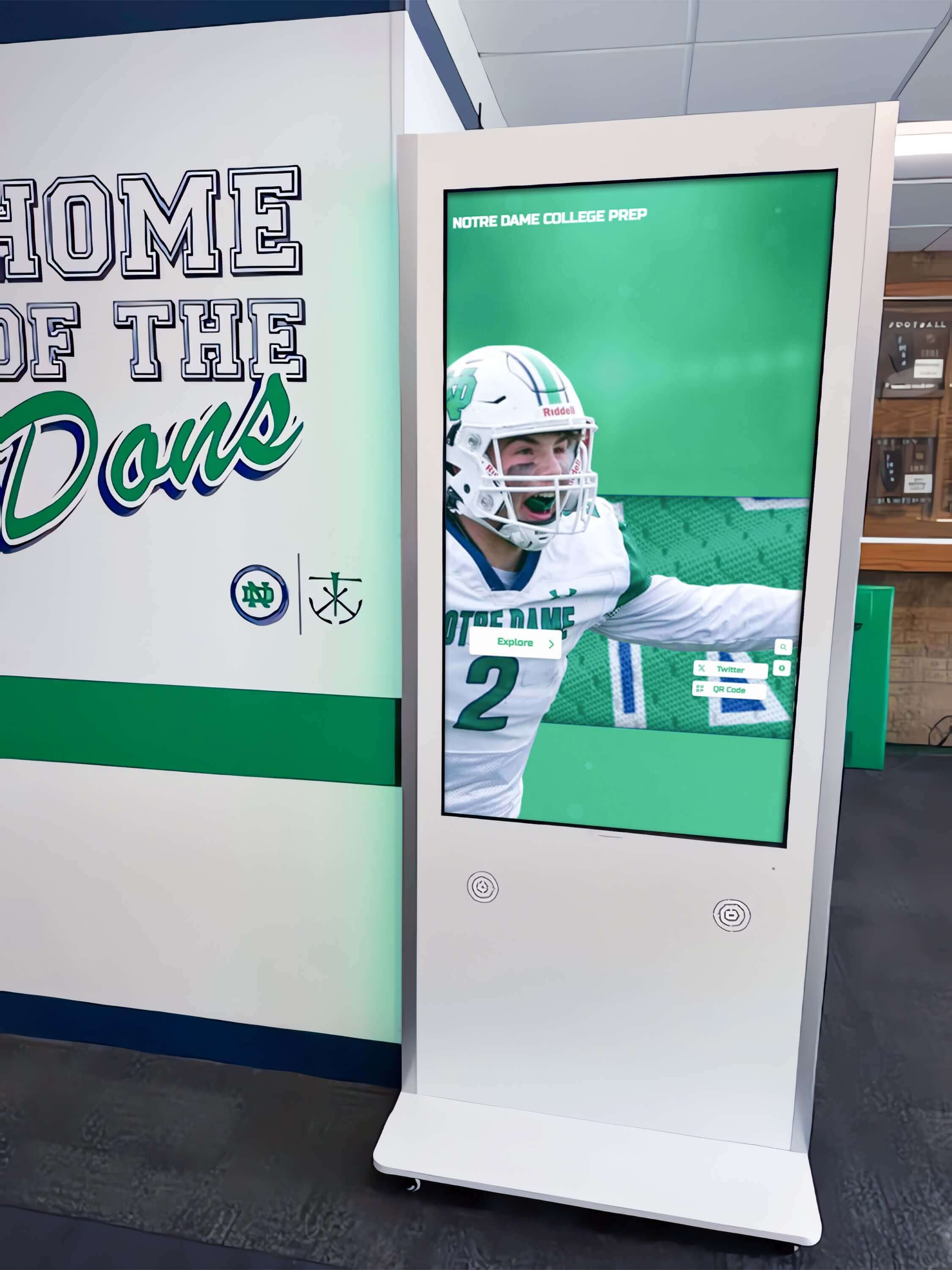
The Big Bad Bruins Identity
The Bruins of this era earned the nickname “Big Bad Bruins” for their physical, intimidating style of play. While Orr dazzled with skill and Esposito scored goals at unprecedented rates, enforcers like Terry O’Reilly and Wayne Cashman ensured opponents paid a physical price.
This combination of elite skill and toughness created an identity that resonated with Boston fans and intimidated opponents. The Big Bad Bruins weren’t just skilled—they were warriors who dominated opponents physically and mentally. This identity remains part of the franchise’s DNA today.
Modern recognition programs can showcase these different playing styles and team identities through interactive hockey displays that allow fans to explore various eras and understand how team character evolved over decades.
The Raymond Bourque Era (1979-2000)
Following Bobby Orr’s premature retirement due to knee injuries in 1978, many wondered if the Bruins could sustain excellence. The answer came in the form of another generational defenseman: Raymond Bourque.
Raymond Bourque's Legendary Career with Boston
Individual Achievements
- 21 Seasons: Played his entire career except final season with Boston
- Five Norris Trophies: Won as NHL's best defenseman
- 19 All-Star Selections: Made the All-Star team every season except his first and last
- 410 Goals and 1,169 Assists: Among the highest-scoring defensemen in NHL history
- Team Captain: Wore the "C" from 1985 until his 2000 trade to Colorado
Team Success and Finals Appearances
- 1988 Stanley Cup Final: Lost to Edmonton Oilers in sweep
- 1990 Stanley Cup Final: Lost to Edmonton Oilers in five games
- Consistent Contender: Led Bruins to playoffs in 19 consecutive seasons
- Leadership: Embodied professionalism and dedication to winning
- Beloved Figure: Became synonymous with Boston hockey excellence
Institutions celebrating long-term excellence often implement comprehensive recognition strategies that showcase sustained achievement across decades—similar to how Bourque’s two-decade career represents enduring excellence.
Other Notable Players of the Bourque Era
While Bourque stood as the franchise’s cornerstone, numerous other exceptional players contributed to Boston’s success during this period:
Cam Neely: One of the most dominant power forwards in NHL history, Neely combined elite scoring with physical intimidation. His 50 goals in 44 games during the 1993-94 season (playing through injury) remains legendary. Neely would later become Bruins team president.
Rick Middleton: “Nifty” Middleton scored 402 goals in 12 seasons with Boston, providing consistent offensive production and becoming one of the franchise’s most beloved players.
Terry O’Reilly: The ultimate heart-and-soul player, O’Reilly played his entire career with Boston, embodying the Big Bad Bruins spirit while serving as captain and later as coach.
Andy Moog and Reggie Lemelin: This goaltending tandem provided stability in the 1980s and early 1990s, helping the Bruins reach two Stanley Cup Finals.

Rebuilding Years (2000-2010)
The early 2000s represented challenging times for the Bruins franchise. Raymond Bourque’s trade to Colorado in 2000 (where he finally won his deserved Stanley Cup) left a leadership vacuum. The team struggled with inconsistency, making the playoffs sporadically but failing to advance beyond the second round.
Key Developments During the Transition
Joe Thornton Era: The Bruins drafted Joe Thornton first overall in 1997, and he developed into one of hockey’s premier playmakers. However, the team traded Thornton to San Jose in 2005—a controversial move that haunted the franchise when Thornton won the Hart Trophy that same season.
Financial Challenges: The 2004-05 NHL lockout and its aftermath created financial and roster challenges. The Bruins needed to rebuild under the league’s new salary cap structure.
Front Office Changes: In 2006, Peter Chiarelli became general manager, and his strategic vision would eventually transform the franchise back into a championship contender.
These difficult years tested fan loyalty, but Boston’s passionate hockey community remained committed to the team. The foundation laid during this rebuilding period would prove essential to future success.

Return to Glory: The 2011 Championship
After 39 years without a Stanley Cup, the Boston Bruins captured their sixth championship in 2011 in one of the most memorable playoff runs in NHL history.
The 2011 Championship Run
Historic Comeback and Domination
- Down 0-2 to Montreal: The Bruins rallied from a 2-0 series deficit in the first round, winning four straight games to advance
- Swept Philadelphia: Dominated the Eastern Conference Semifinals 4-0
- Beat Tampa Bay: Defeated the Lightning in seven games in the Conference Finals
- Finals Comeback: Trailed Vancouver 2-0 and 3-2 in the series before winning Games 6 and 7
- Game 7 in Vancouver: Won the deciding game 4-0 on the road—one of the great road victories in championship history
This championship run featured contributions across the entire roster and showcased the depth, determination, and resilience that define championship teams. Solutions like Rocket Alumni Solutions help organizations preserve and celebrate these complete team achievements through comprehensive digital recognition.

2011 Team Leaders and Heroes
The 2011 championship team featured numerous contributors who became Boston legends:
Zdeno Chara: The towering captain (6'9") provided leadership, defensive excellence, and intimidation. His presence set the tone for the team’s identity.
Patrice Bergeron: Already established as an elite two-way center, Bergeron’s playoff performance showcased his complete game. He would become the franchise’s next captain and one of its all-time greats.
Tim Thomas: The Conn Smythe Trophy winner as playoff MVP, Thomas posted a .940 save percentage and 1.98 goals-against average. His Game 7 shutout in Vancouver remains legendary.
Milan Lucic, David Krejci, Brad Marchand: These offensive contributors provided crucial scoring throughout the playoff run.
Mark Recchi, Michael Ryder, Nathan Horton: Veteran leadership and timely goals proved essential to the championship.
This diverse group demonstrated that championship success requires contributions from every player, a lesson that resonates in any team environment. Organizations celebrating team achievement often utilize comprehensive team recognition displays that honor all contributors.

The Bergeron Era and Continued Excellence (2011-2024)
Following the 2011 championship, the Bruins established themselves as perennial contenders, consistently making deep playoff runs and competing for championships.
Sustained Excellence Under Bergeron’s Leadership
Patrice Bergeron succeeded Zdeno Chara as team captain in 2021, becoming the 20th captain in franchise history. His tenure as captain continued the tradition of exceptional leadership that has defined the franchise. Bergeron’s combination of offensive skill, defensive excellence, and character made him one of hockey’s most respected players.
Bergeron won five Selke Trophies as the NHL’s best defensive forward—more than any player in history. His 200-foot game, face-off dominance, and clutch performances in critical moments epitomized winning hockey. When Bergeron retired after the 2022-23 season, he left a legacy as one of the Bruins’ all-time greatest players.
The 2013 Stanley Cup Final
The Bruins returned to the Stanley Cup Final in 2013, ultimately falling to the Chicago Blackhawks in six games. Game 6 featured one of the most dramatic finishes in championship history, with Chicago scoring two goals in 17 seconds late in the third period to clinch the title.
While the loss stung, the appearance demonstrated the franchise’s sustained competitiveness and ability to build championship-caliber teams consistently.
Record-Setting 2022-23 Season
The 2022-23 Bruins set NHL records with 65 wins and 135 points during the regular season, establishing themselves as one of the greatest regular-season teams in hockey history. Led by Bergeron, Brad Marchand, and David Pastrnak, the team dominated throughout the season.
Despite this historic regular season, the Bruins fell to the Florida Panthers in the first round of the playoffs, demonstrating the unpredictable nature of playoff hockey and the difficulty of converting regular-season excellence into championship success.

Legendary Bruins Players Throughout History
The Boston Bruins franchise has featured numerous Hall of Fame players who defined their eras and shaped the franchise’s identity.
All-Time Bruins Legends
Bobby Orr
Revolutionized defensive play, won two Stanley Cups, three Hart Trophies, eight Norris Trophies. Greatest defenseman in history.

Raymond Bourque
21 seasons with Boston, five Norris Trophies, 19 All-Star selections. Among the greatest defensemen ever.

Phil Esposito
Set scoring records with 76 goals and 152 points. Five-time Art Ross Trophy winner as league scoring champion.
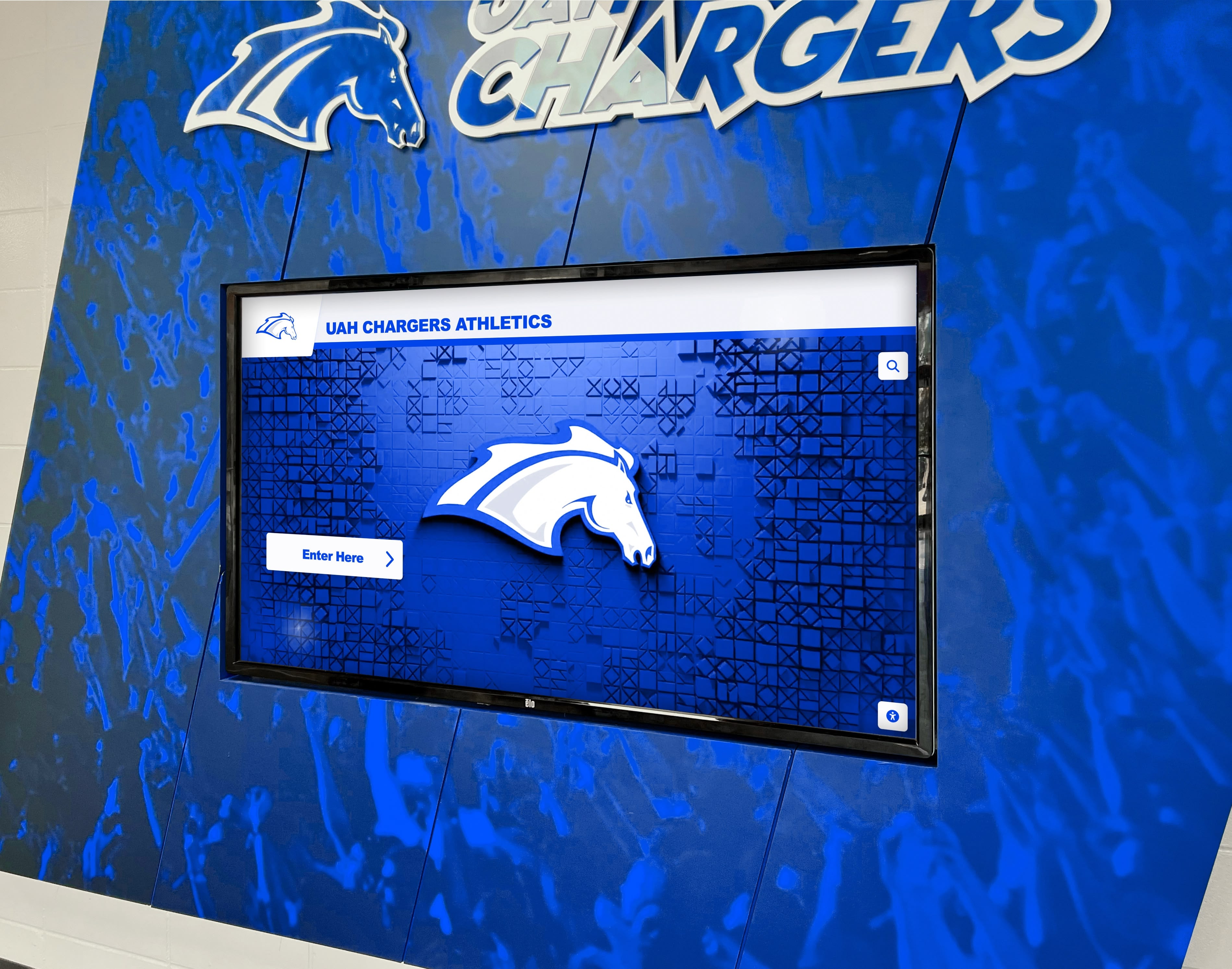
Johnny Bucyk
Played 21 seasons with Boston, scored 545 goals, won two Stanley Cups. "Chief" remains beloved franchise icon.
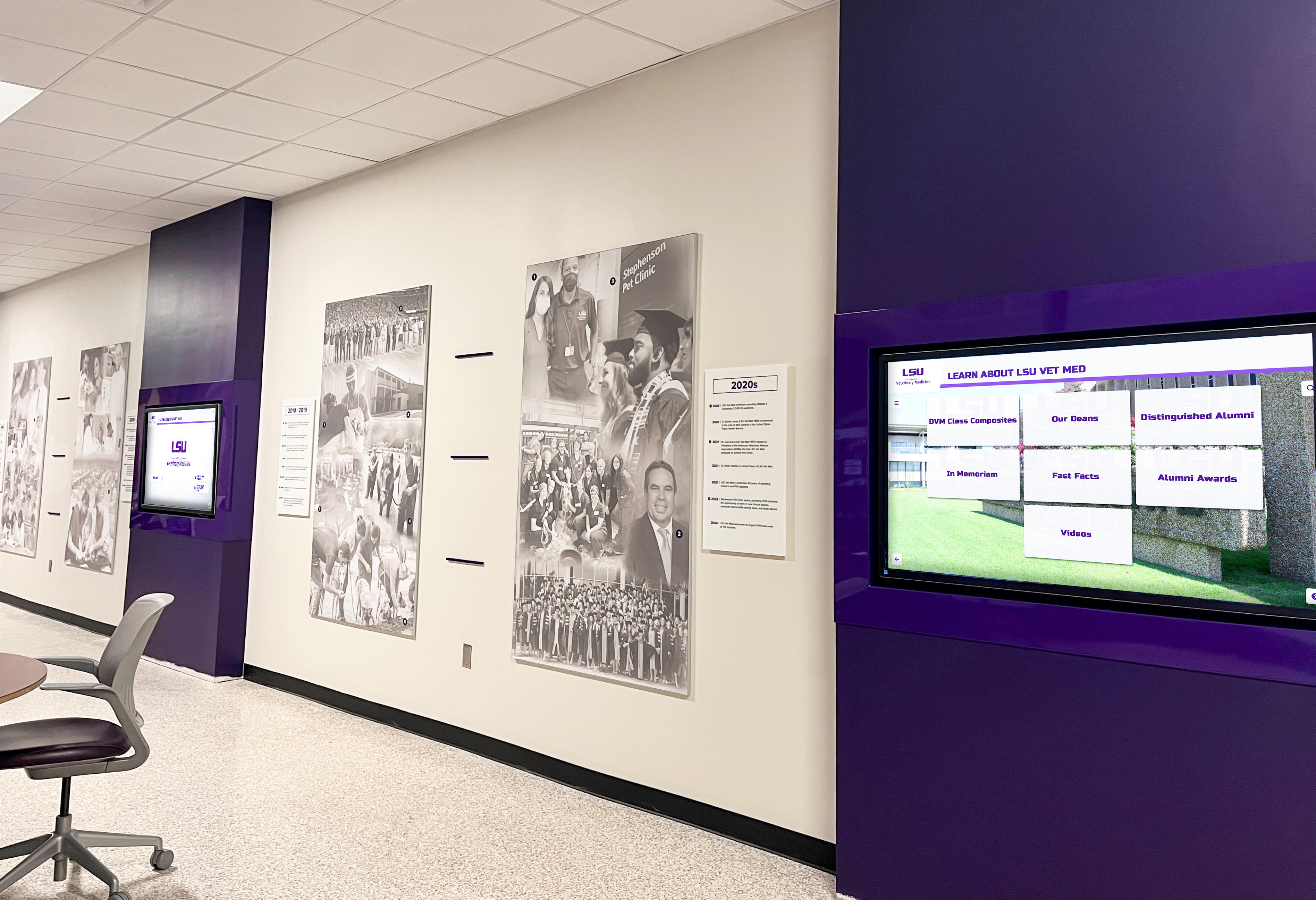
Patrice Bergeron
Five Selke Trophies, 2011 Stanley Cup champion, embodied two-way excellence and leadership throughout career.
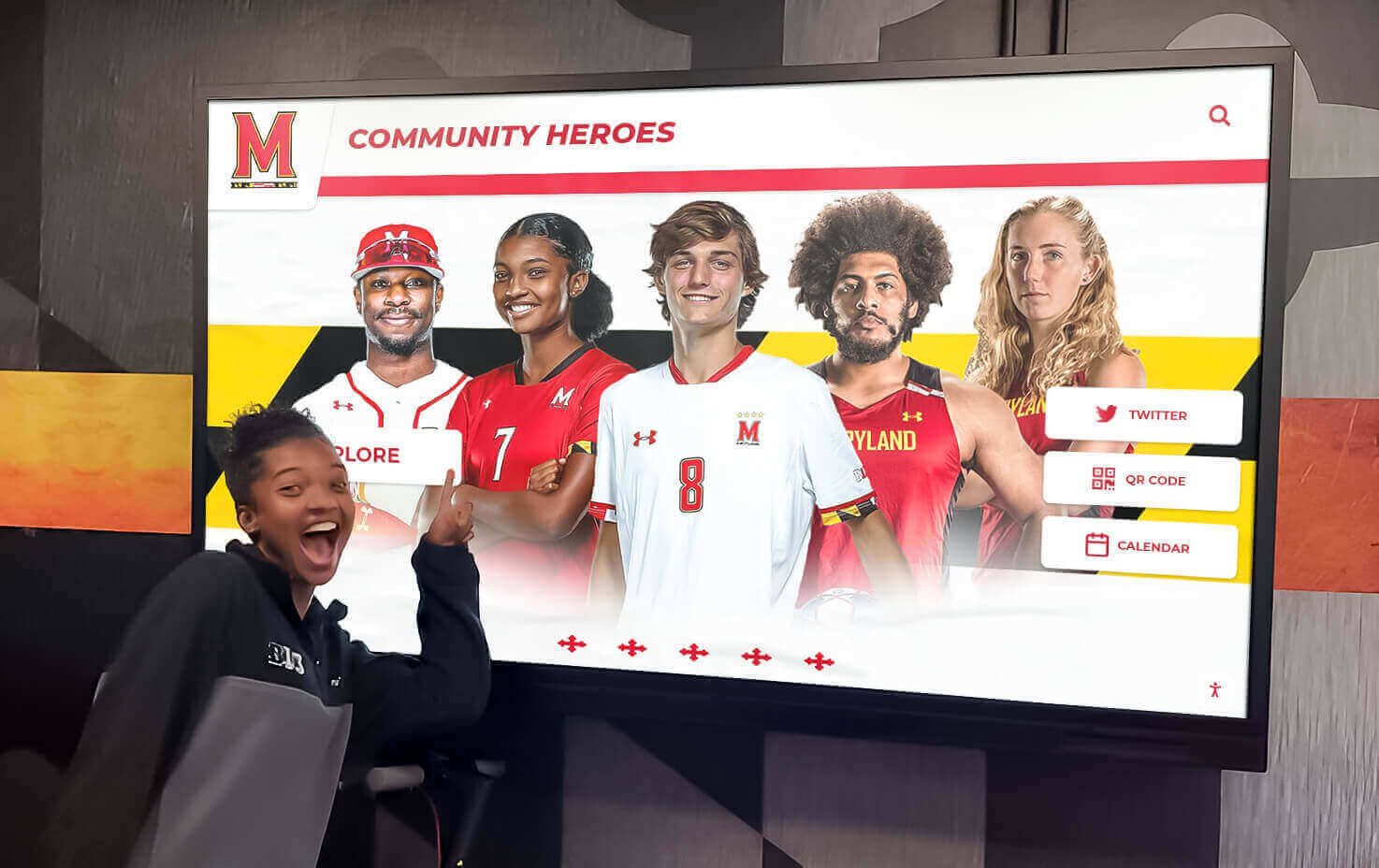
Eddie Shore
Four Hart Trophies in the 1930s, revolutionized defensive play, first hockey superstar. Won two Stanley Cups.

Understanding how to properly celebrate individual legends while maintaining team context is essential for any recognition program. Resources on recognizing notable alumni provide insights applicable to sports franchise recognition as well.
Retired Numbers and Jersey History
The Boston Bruins have retired numerous jersey numbers to honor their greatest players, creating a tangible connection between past legends and current players.
Officially Retired Numbers
The Bruins have retired the following jersey numbers, permanently honoring franchise legends:
- #2 - Eddie Shore: The NHL’s first superstar defenseman
- #3 - Lionel Hitchman: Defensive stalwart of championship teams
- #4 - Bobby Orr: Greatest defenseman in hockey history
- #5 - Dit Clapper: First player to play 20 seasons, Hall of Famer
- #7 - Phil Esposito: Scoring champion and two-time Stanley Cup winner
- #8 - Cam Neely: Dominant power forward and team president
- #9 - Johnny Bucyk: “Chief” played 21 seasons, won two Cups
- #15 - Milt Schmidt: Member of legendary Kraut Line, later coach and GM
- #24 - Terry O’Reilly: Embodiment of Bruins toughness and heart
- #77 - Raymond Bourque: 21 seasons of defensive excellence
Additionally, the Bruins retired #37 for Patrice Bergeron during the 2024-25 season, honoring his exceptional career and leadership.
These retired numbers hang from the rafters at TD Garden, serving as constant reminders of the standards of excellence established by franchise legends. They inspire current players while educating new generations about Boston hockey history.

Boston Bruins Championships and Major Achievements
The Boston Bruins’ six Stanley Cup championships represent the pinnacle of franchise achievement, but numerous other accomplishments highlight organizational excellence.
Stanley Cup Championships
- 1929: First championship, defeated New York Rangers
- 1939: Second Cup, featuring legendary Kraut Line
- 1941: Third championship during golden era
- 1970: Bobby Orr’s “flying goal” clinches fourth Cup
- 1972: Fifth Cup with Orr and Esposito
- 2011: Sixth championship after 39-year drought
Conference and Division Championships
The Bruins have won numerous conference championships (formerly Prince of Wales Trophy) and division titles throughout their history. The franchise has claimed over 25 division championships, demonstrating consistent excellence across nearly a century.
Individual Award Winners
Boston players have won virtually every major NHL individual award:
- Hart Trophy (MVP): Eddie Shore (4), Bobby Orr (3), Phil Esposito (2), Cam Neely (1)
- Norris Trophy (Best Defenseman): Bobby Orr (8), Raymond Bourque (5), Zdeno Chara (1)
- Selke Trophy (Best Defensive Forward): Patrice Bergeron (5)
- Vezina Trophy (Best Goaltender): Tiny Thompson (4), Tim Thomas (2)
- Art Ross Trophy (Scoring Champion): Phil Esposito (5), Bobby Orr (2)
These individual achievements, combined with team success, establish the Bruins as one of hockey’s most decorated franchises.
Organizations preserving comprehensive achievement records often implement digital record board systems that can accommodate extensive statistical and awards data while remaining easily updateable.
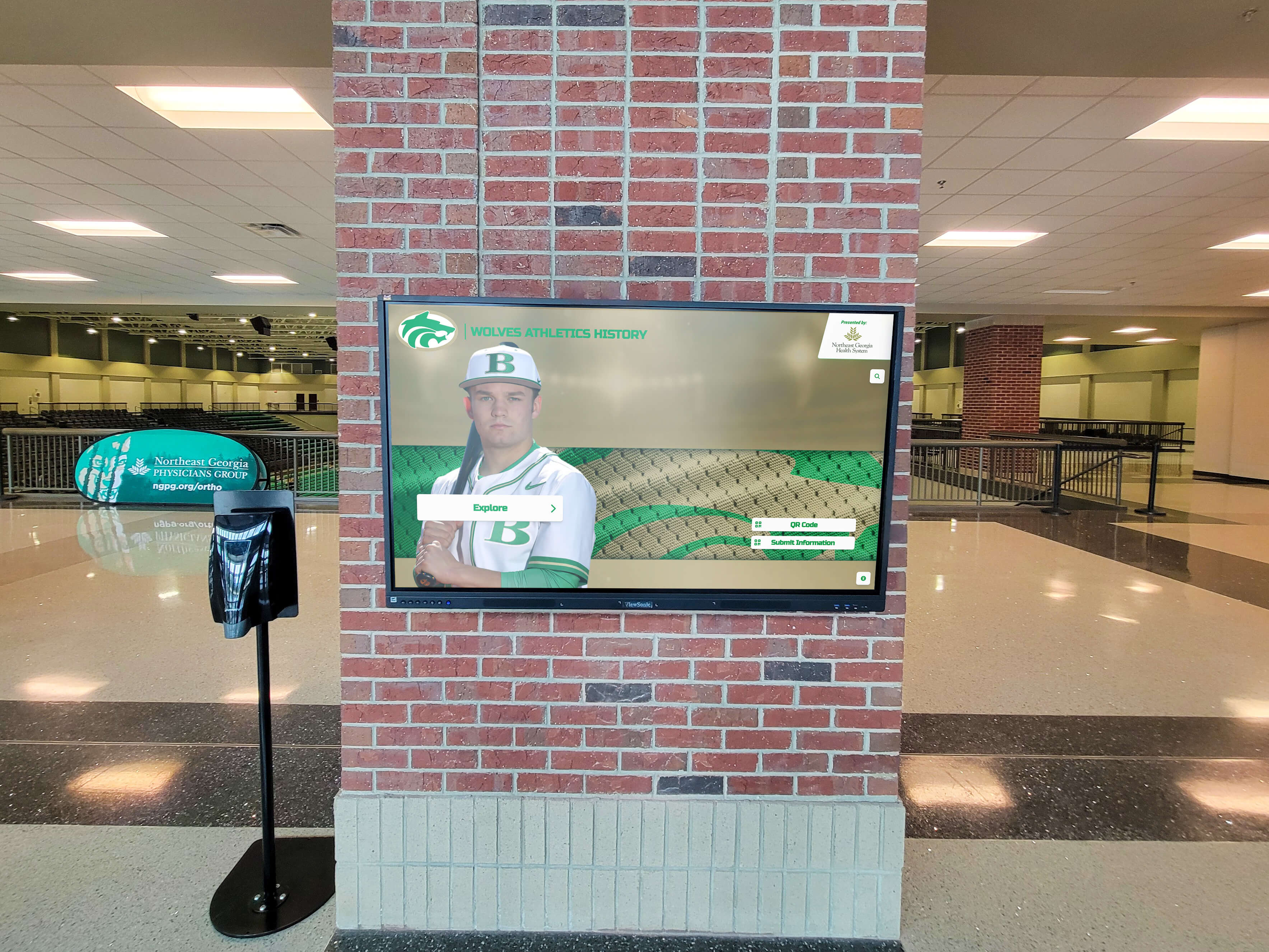
Notable Coaches and Front Office Leadership
Behind every successful franchise stand exceptional coaches and front office leaders who build winning cultures and assemble championship rosters.
Legendary Coaches
Art Ross (1924-1945): The franchise’s first coach and GM, Ross built the Bruins from inception and guided them to three Stanley Cups. The Art Ross Trophy for leading scorer bears his name.
Milt Schmidt (1954-1966): Former Kraut Line member who later coached and served as GM, Schmidt maintained Bruins excellence across different eras.
Don Cherry (1974-1979): The colorful coach led the Bruins to four division titles and two Stanley Cup Finals, though championships remained elusive. Cherry later became famous as a television personality.
Claude Julien (2007-2017): Led Boston to the 2011 Stanley Cup championship and the 2013 Finals appearance. His defensive system and leadership created consistent contenders.
Bruce Cassidy (2017-2022): Guided the Bruins to the 2019 Stanley Cup Final and the record-setting 2022-23 season before being controversially dismissed.
Front Office Excellence
Harry Sinden (1972-2006): As GM and later president, Sinden shaped the franchise for over three decades, building competitive teams and maintaining the Bruins’ proud traditions.
Peter Chiarelli (2006-2015): Orchestrated the roster construction that led to the 2011 championship, making key trades and draft selections that built a winner.
Don Sweeney (2015-present): Current GM who has maintained competitive rosters while managing salary cap constraints and navigating franchise transitions.
Cam Neely (2010-present): As team president, former Bruins star Neely oversees all hockey operations, connecting the franchise’s glorious past with its competitive present.
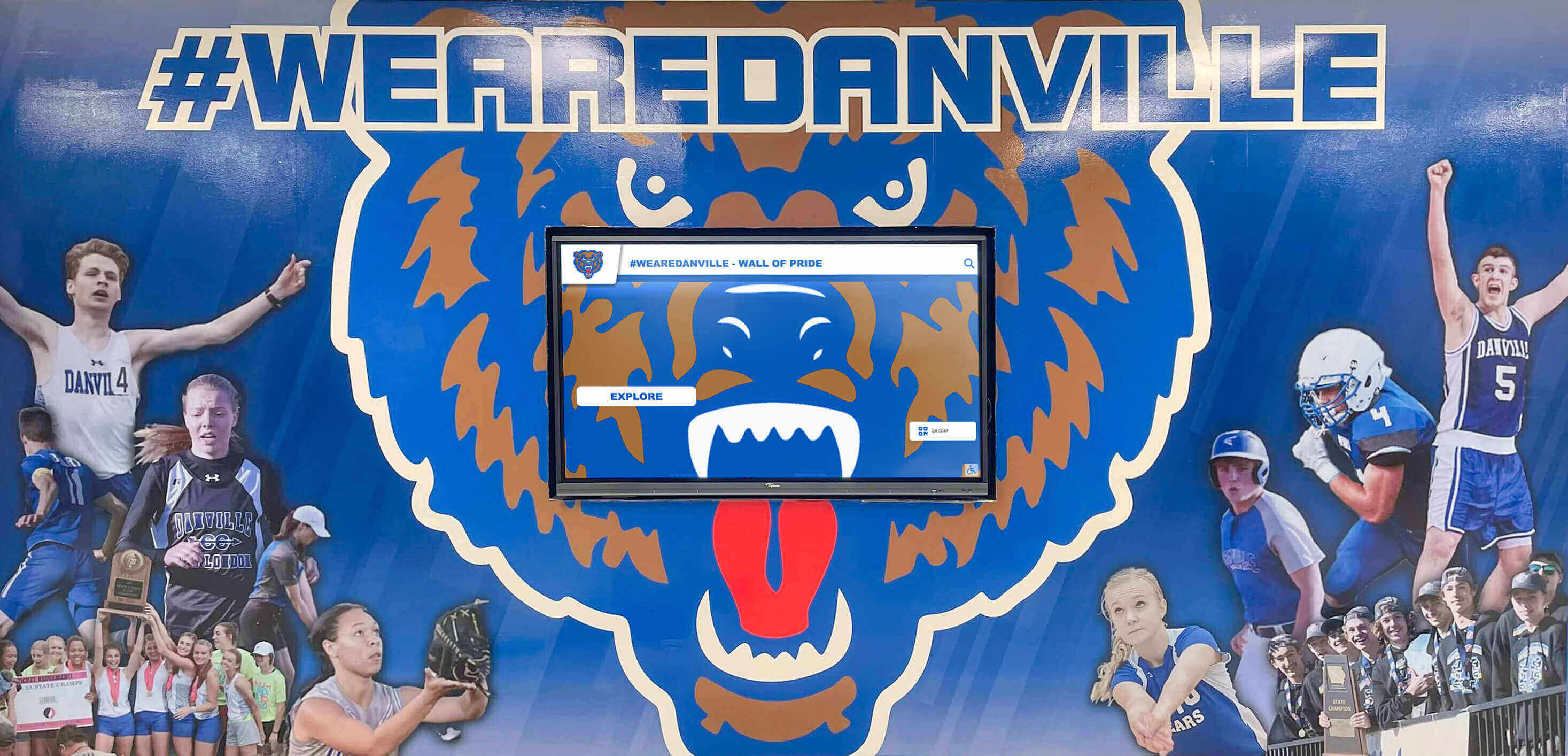
TD Garden: The Modern Home of the Bruins
In 1995, the Bruins moved from the legendary Boston Garden to the new FleetCenter (now TD Garden). While some fans mourned losing the historic building’s character, the new arena provided modern amenities while maintaining the intimate, intense atmosphere Boston fans cherish.
TD Garden Features and Legacy
The 17,850-seat arena hosts not only Bruins games but also the NBA’s Boston Celtics, concerts, and other events. The arena incorporates numerous tributes to Bruins history:
- Retired numbers hanging from the rafters
- Championship banners celebrating six Stanley Cups
- The “Bobby Orr Statue” outside the arena
- Hall of Fame displays throughout concourses
- Historical exhibits celebrating franchise traditions
The building maintains Boston Garden’s intimidating atmosphere while offering contemporary fan experiences. The combination of historical reverence and modern amenities creates an environment that honors tradition while embracing the future.
Many modern facilities incorporate interactive displays and touchscreen technology to help fans explore organizational history and celebrate achievement—approaches that enhance visitor experiences at sports venues like TD Garden.
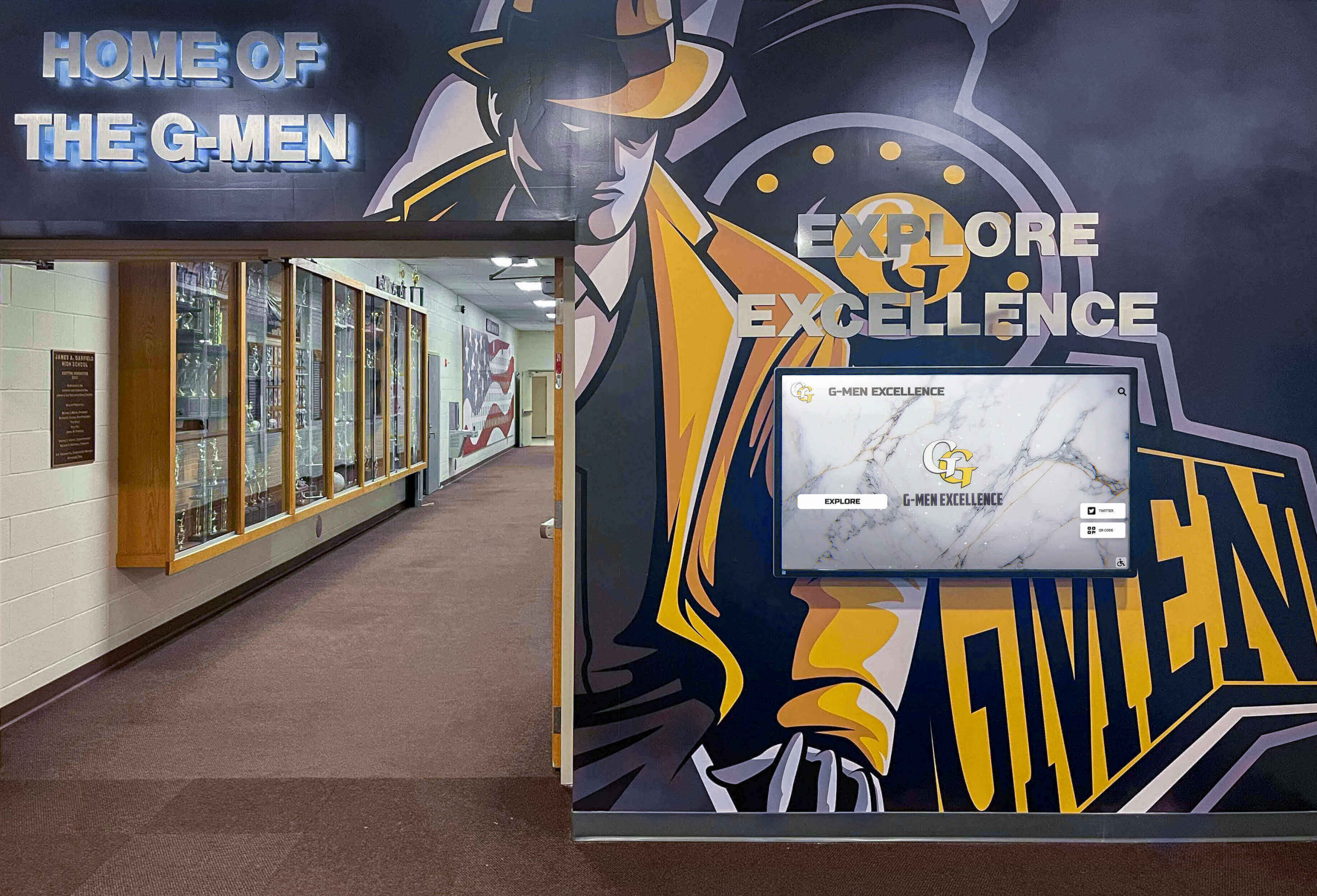
Bruins Rivalries: Historic Competitions
The Boston Bruins have developed intense rivalries throughout their history, creating memorable moments and passionate competitions that define the franchise experience.
Montreal Canadiens: The Original Rivalry
The Bruins-Canadiens rivalry represents the fiercest competition in hockey history. Dating to the 1920s, these Original Six franchises have met 34 times in the playoffs (more than any other matchup), with Montreal holding a 25-9 series advantage.
Key moments include the 1979 semifinal series featuring the “too many men” penalty that cost Boston the series, countless regular-season battles at Boston Garden and the Montreal Forum, and the 2011 first-round series where Boston rallied from a 2-0 deficit. The rivalry transcends hockey, representing historic tensions between Boston and Montreal, English and French Canada, and contrasting hockey philosophies.
Other Notable Rivalries
New York Rangers: As fellow Original Six teams in the Eastern Conference, Boston and New York have battled for decades, with playoff series often featuring physical, emotional hockey.
Philadelphia Flyers: The “Broad Street Bullies” Flyers and Big Bad Bruins created intense, physical matchups in the 1970s that remain legendary.
Toronto Maple Leafs: Another Original Six rivalry featuring historic regular-season battles and memorable playoff series.
These rivalries create context and narrative that make regular-season games meaningful beyond standings implications. They connect current players and fans to franchise history through continuing competition.
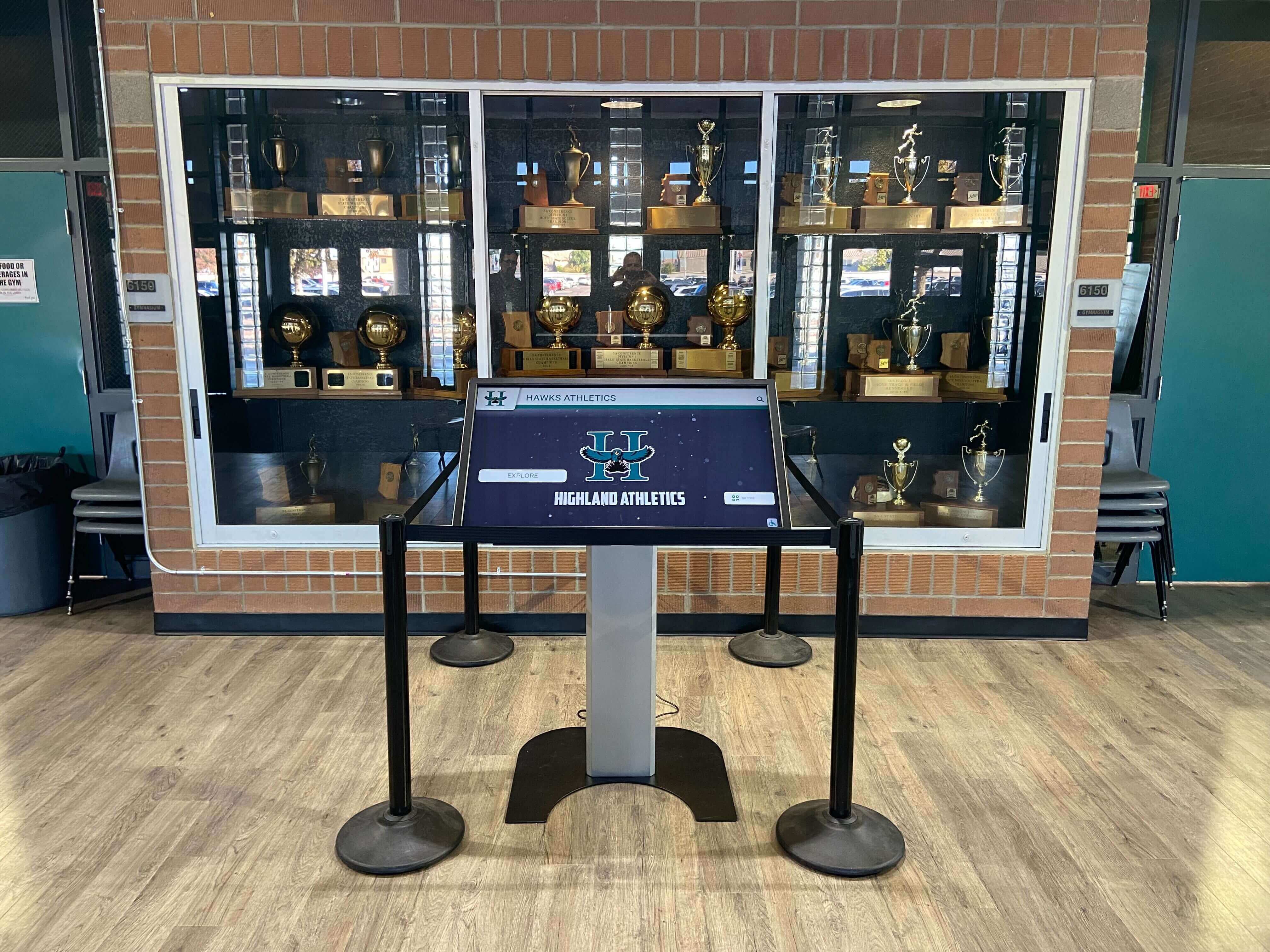
Preserving Bruins History Through Modern Recognition
The rich history of the Boston Bruins franchise deserves preservation and celebration that allows new generations to understand and appreciate the traditions, achievements, and legends that built this iconic organization.
Traditional Recognition Methods
The Bruins utilize various traditional approaches to honor franchise history:
- Retired Numbers: Jersey numbers hanging from TD Garden rafters
- Championship Banners: Six Stanley Cup banners prominently displayed
- Physical Statues: The Bobby Orr statue outside TD Garden
- Hall of Fame Displays: Physical exhibits in arena concourses
- Media Guides and Publications: Printed materials documenting franchise history
These traditional methods provide visual presence and create memorable experiences for fans attending games at TD Garden.
Digital Recognition Enhancement
Modern technology enables enhanced preservation and accessibility of franchise history. Digital recognition solutions offer significant advantages for celebrating comprehensive organizational achievement:
Unlimited Content Capacity: Digital platforms can showcase every player, every season, and every achievement without space constraints that limit physical displays.
Rich Multimedia Integration: Video highlights of Bobby Orr’s flying goal, Phil Esposito’s record-setting season, or the 2011 championship run bring history to life in ways static photos cannot match.
Interactive Exploration: Fans can search for specific players, filter by era or position, explore statistical leaders, and discover connections between different periods of franchise history.
Remote Accessibility: Web-based platforms allow Bruins fans worldwide to explore franchise history from anywhere, democratizing access beyond those able to visit TD Garden.
Easy Updates: As new achievements occur and new legends emerge, digital systems enable immediate updates without physical construction or installation costs.
Solutions like Rocket Alumni Solutions provide organizations with comprehensive digital recognition platforms specifically designed for celebrating institutional history, preserving achievements, and engaging communities—capabilities equally valuable for educational institutions and professional sports franchises alike.
Organizations seeking to implement comprehensive historical recognition often explore proven strategies for creating hall of fame programs that balance tradition with modern technology.

The Future of the Boston Bruins
As the Boston Bruins move forward, the franchise faces both opportunities and challenges while maintaining the proud traditions established over nearly a century.
Current Roster and Direction
Following Patrice Bergeron’s retirement in 2023, the Bruins entered a transition phase. The team retains core players including Brad Marchand (the current captain), David Pastrnak, and Charlie McAvoy while integrating younger talent and navigating salary cap constraints.
The franchise’s commitment to winning remains unwavering. General manager Don Sweeney and coach Jim Montgomery (hired in 2022) work to build competitive rosters capable of contending for championships while developing the next generation of Bruins stars.
Maintaining Winning Traditions
The Bruins’ nearly 100-year history provides both inspiration and pressure. Current players understand they’re stewards of a legendary franchise, wearing the black and gold worn by Orr, Bourque, Esposito, Bergeron, and countless other legends.
This consciousness of history, combined with Boston’s passionate fanbase expectations, creates a culture where excellence isn’t optional—it’s expected. The franchise’s sustained success across multiple eras demonstrates an organizational commitment to winning that transcends individual players or specific periods.
Youth Development and Draft Success
Building sustained success requires effective player development and smart drafting. The Bruins have historically succeeded in identifying and developing talent, with recent prospects like Jeremy Swayman (goaltending) and Mason Lohrei (defense) showing promise.
The franchise’s ability to blend veteran leadership with emerging talent will determine success in coming years. Maintaining competitiveness while transitioning from one generation to the next represents hockey’s greatest organizational challenge.
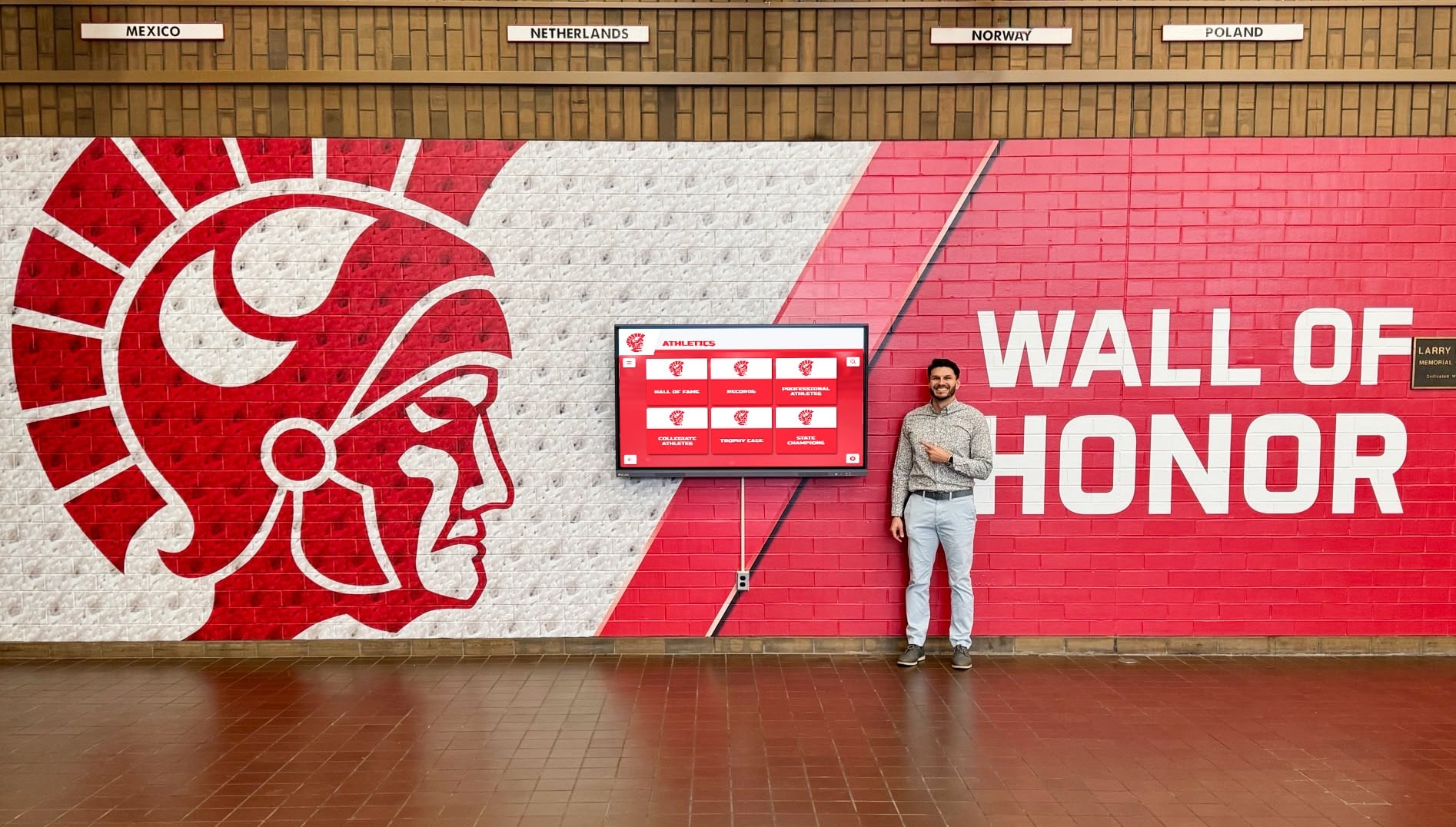
Lessons from Bruins History
The Boston Bruins franchise offers numerous lessons about sustained organizational excellence that apply beyond hockey to any competitive endeavor.
Building Winning Culture
Championship organizations share common characteristics that the Bruins exemplify:
Leadership Matters: From Eddie Shore through Bobby Orr, Raymond Bourque, and Patrice Bergeron, the Bruins have consistently featured exceptional leaders who set standards and inspire teammates.
Identity Clarity: The “Big Bad Bruins” identity—combining skill with toughness—created a clear organizational character that guided roster construction and tactical approaches for decades.
Respect for History: Retired numbers, championship banners, and constant references to franchise legends connect current players to traditions larger than themselves, creating accountability and motivation.
Sustained Investment: The Adams family and subsequent ownership groups consistently invested in competitive rosters, quality facilities, and organizational excellence rather than pursuing short-term profits.
Adaptability: From Art Ross’s innovative strategies through modern analytics-driven approaches, the Bruins have adapted to hockey’s evolution while maintaining core identity and values.
These principles of organizational excellence apply whether building championship sports teams or pursuing excellence in education, business, or community organizations.
The Power of Recognition
The Bruins’ commitment to honoring franchise legends through retired numbers, hall of fame inductions, and various recognition programs demonstrates understanding that celebrating past excellence inspires future achievement.
When current players see Bobby Orr’s #4 or Raymond Bourque’s #77 hanging from the rafters, they understand the standards they’re expected to meet. This visible connection to history creates both accountability and aspiration.
Organizations of all types benefit from similar recognition approaches. Schools honoring distinguished alumni, businesses celebrating founder legacies, and communities recognizing historical contributions all leverage the power of recognition to inspire excellence and strengthen organizational identity.
Modern comprehensive hall of fame programs enable organizations to systematically preserve history, celebrate achievement, and inspire future generations across various institutional contexts.
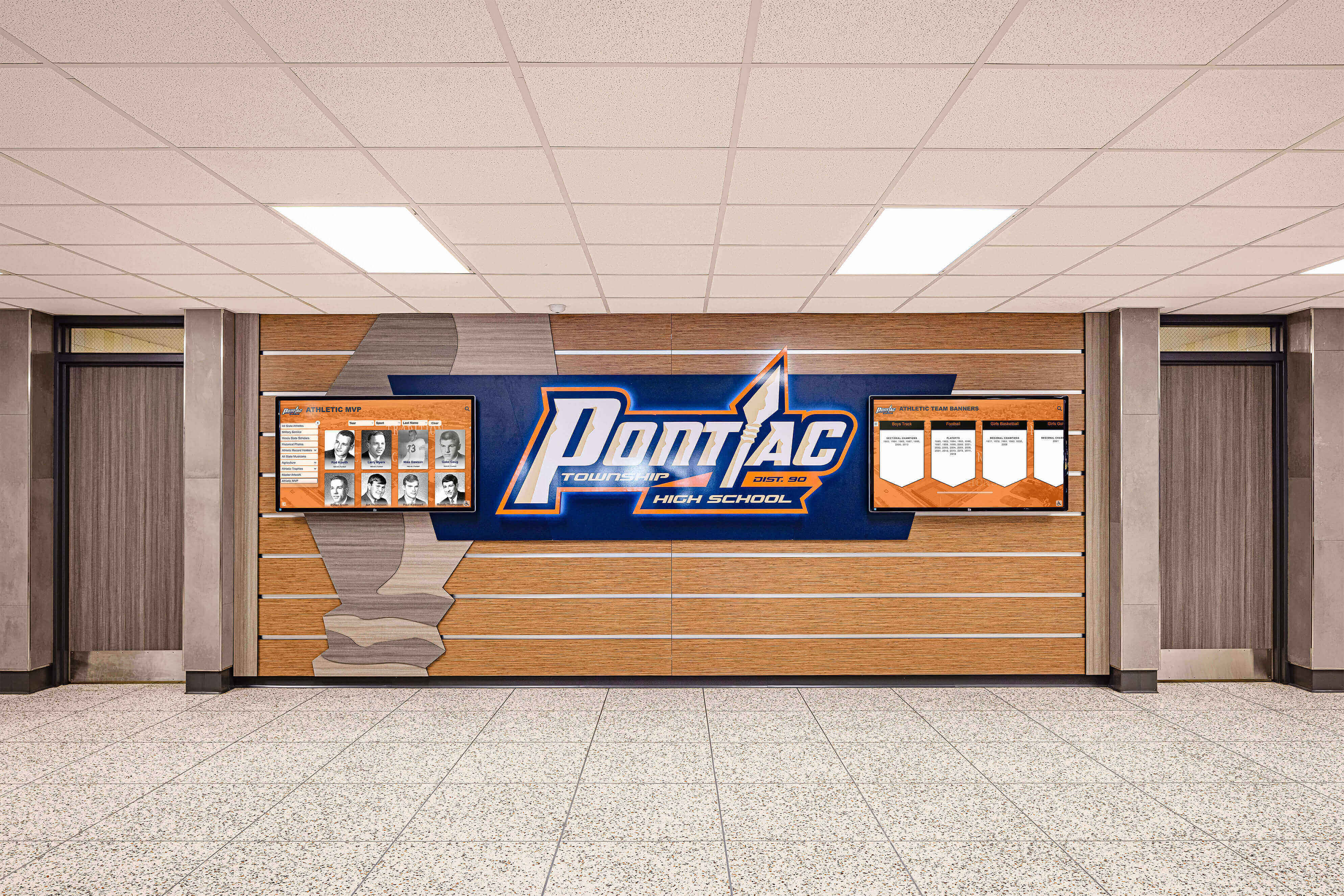
Conclusion
The Boston Bruins stand as one of professional hockey's most successful and storied franchises, with nearly a century of tradition, excellence, and unforgettable moments. From their founding in 1924 as the NHL's first American-based team through six Stanley Cup championships and countless legendary players, the Bruins have consistently exemplified what it means to pursue and achieve greatness.
The franchise's history spans multiple distinct eras—from the early championship years and Eddie Shore's dominance, through the Bobby Orr revolution that transformed hockey itself, to Raymond Bourque's two decades of defensive excellence, and finally the 2011 championship that ended a 39-year drought. Each era featured distinctive characters and achievements while maintaining core Bruins identity: toughness, skill, determination, and winning tradition.
Legendary players like Bobby Orr, Raymond Bourque, Phil Esposito, Johnny Bucyk, Cam Neely, and Patrice Bergeron wore the black and gold with distinction, setting records and winning championships while inspiring generations of Boston fans. Their achievements deserve preservation and celebration that allows future generations to understand the traditions they're inheriting.
Modern recognition technology enables comprehensive preservation of franchise history through interactive digital displays that can showcase every player, every championship, and every memorable moment without the space constraints of traditional physical displays. These solutions provide museums, educational institutions, and sports organizations with practical approaches to honoring history while engaging contemporary audiences.
Whether you're a lifelong Bruins fan, a hockey history enthusiast, or an organization seeking to preserve your own institutional traditions, the Boston Bruins franchise demonstrates how honoring the past inspires the future. The black and gold will continue flying at TD Garden for decades to come, carrying forward the proud traditions established by nearly a century of hockey excellence.
